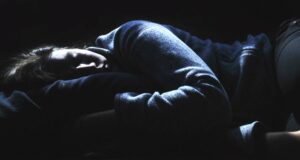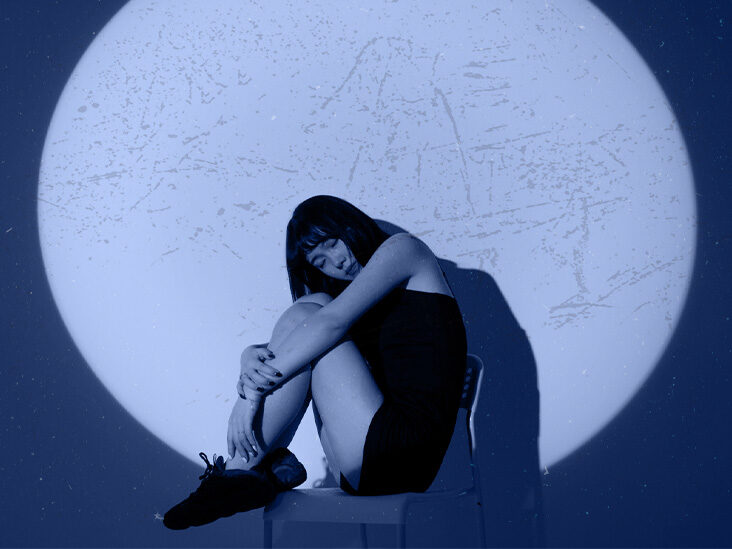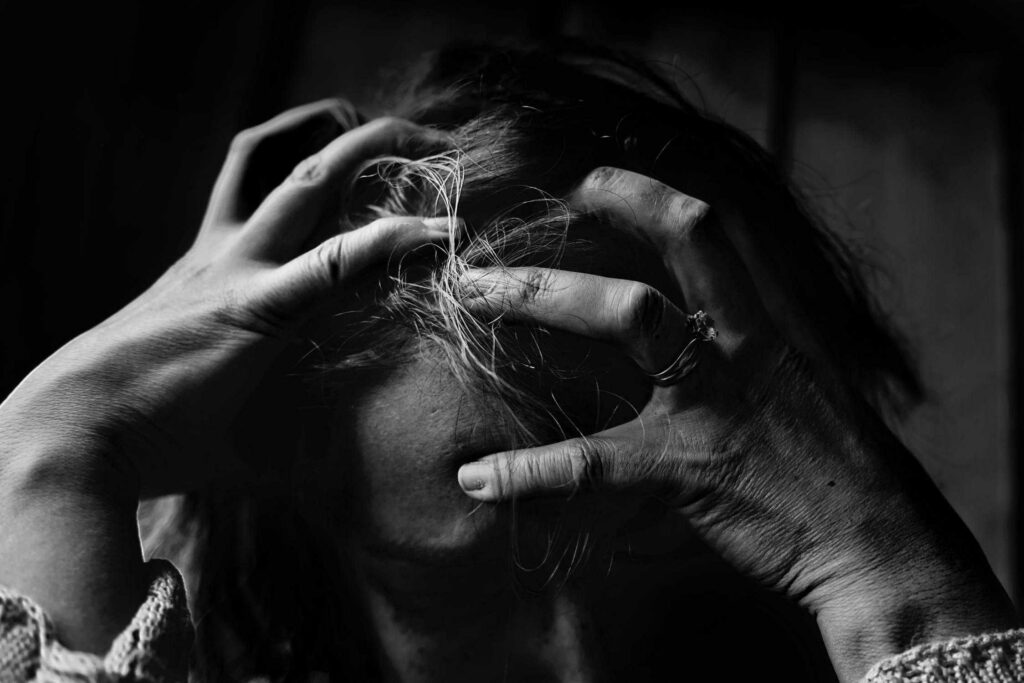Do you feel more depressed at night? You’re not alone. According to the National Sleep Foundation, “depression is one of the most common mental health problems reported among adults.” In this blog post, we will explore some of the reasons why people might feel more depressed at night and offer some tips on how to deal with it.
Contents
What Is Depression at Night?

Depression at night, also known as nocturnal depression, is a type of depression that is characterized by feelings of sadness, low energy, and fatigue that are worse at night. People with this type of depression may have difficulty falling asleep or staying asleep, and they may wake up feeling unrefreshed and tired.
There are a few different possible explanations for why some people tend to feel more depressed at night. One theory is that it could be due to the body’s natural circadian rhythms. The body’s circadian rhythm is an internal 24-hour clock that regulates many biological processes, including sleep. Research has shown that people with depression often have a disruption in their circadian rhythms, which can lead to feeling tired and low during the day and then experiencing a “second wind” at night.
Another possibility is that people tend to ruminate more at night when they are alone with their thoughts. Rumination is when someone endlessly focuses on their negative thoughts and emotions, which can make them feel even worse.
Is Depression at Night Common?

There are many reasons why people with depression may find that their symptoms are worse at night. For one, the lack of daytime activities and exposure to natural light can make depressive symptoms worse. Additionally, many people with depression have trouble sleeping, which can exacerbate their symptoms. Additionally, some medications used to treat depression can cause insomnia or make it worse.
While depression can occur at any time of day, it is more common at night. This may be because people are more likely to ruminate about their problems during the evening hours. Additionally, the lack of sunlight exposure during the night can lead to feelings of sadness and loneliness.
Approximately 60 percent of people with depression report feeling worse at night. This can make it difficult to fall asleep and stay asleep. Insomnia is a common symptom of depression, and it can further contribute to feelings of fatigue and low energy. There may be many reasons why depression is more common at night, but this is still an area of research that needs further exploration.
According to a recent study, depression at night is more common in people who live in colder climates. This may be due to the lack of sunlight exposure during the winter months. Additionally, people who live in northern latitudes are more likely to experience seasonal affective disorder (SAD), which is a type of depression that occurs during the winter.
Other reasons can be work schedules, stress from family or relationship problems, and changes in hormone levels. No matter the reason, if you find that your depression is worse at night, there are things that you can do to ease your symptoms.
Signs of Depression At Night
There are many signs of depression, and they vary from person to person. Some people experience most of their symptoms during the day, while others find that their symptoms are worse at night.
Some of these signs are:
Insomnia
One of the most common signs of depression is insomnia, or the inability to sleep. This can be either difficulty falling asleep or waking up frequently during the night. People with depression often find that their sleep is restless and unrefreshing.
Nightmares
Another common symptom of depression is nightmares. These can be very vivid and disturbing and may make it even harder to get a good night’s sleep.
Early Morning Awakening
People with depression often wake up early in the morning and are unable to get back to sleep. This can make it hard to function during the day, as you are already exhausted from lack of sleep.
Appetite Changes
Changes in appetite are another common symptom of depression. Some people find that they have no appetite at all, while others have increased cravings for certain foods. These changes in appetite can lead to weight loss or gain.
Irritability
Depression can also cause irritability, especially at night. This may be because you are not getting enough sleep, or it may be a symptom of depression itself. Either way, it can make it hard to deal with day-to-day life.
Anxiety
Anxiety is another common symptom of depression. This may manifest as worry about your future, or it may be more generalized anxiety about everything. This anxiety can make it hard to relax and get to sleep at night.
How To Treat Depression At Night?

Some tips to ease nighttime depression symptoms include:
Get Regular Exercises During The Day
One of the most common tips to ease depression symptoms is to get regular exercise during the day. It has been found that people who exercise regularly are less likely to experience depression symptoms, including at night.
There are numerous benefits of exercise, including improving mood and sleep quality. If you’re struggling with depression, aim to get at least 30 minutes of moderate-intensity exercise most days of the week.
Choose Bright Light Exposure During The Day
Another helpful tip is to choose bright light exposure during the day. This is because sunlight can help improve mood and energy levels.
If you’re able to, spending time outside in the sun for 30 minutes each day can make a big difference. You can also try using a light therapy box for 30 minutes each day.
Reduce Caffeine Intake
Caffeine is a stimulant and can make depression symptoms worse. If you’re struggling with depression, it’s best to limit caffeine intake or avoid it altogether.
Aim to consume no more than 400 mg of caffeine per day, which is about four cups of coffee. If you’re experiencing severe depression symptoms, it’s best to avoid caffeine entirely.
Create A Bedtime Routine
Having a bedtime routine can help reduce depression symptoms at night. This is because routines help to wind down the body and mind in preparation for sleep.
Some things you can do as part of your bedtime routine include reading, taking a bath, and stretching. aim to do the same things each night so that your body knows it’s time to sleep.
Get Enough Sleep
Getting enough sleep is crucial for managing depression symptoms. Most adults need seven to eight hours of sleep per night.
If you’re struggling to get enough sleep, there are a few things you can try, such as setting a regular bedtime and avoiding screens before bed. You can also talk to your doctor about taking a sleep aid if other methods haven’t worked.
Talk To Your Doctor About Medication
If lifestyle changes and self-care strategies haven’t helped ease your depression symptoms, medication may be an option. There are many different types of antidepressant medications that can be effective.
It’s important to talk to your doctor about all of your options and what might work best for you. If you start medication, it may take a few weeks to notice an improvement in symptoms.
Consider Counseling Or Therapy
Another option for treating depression is counseling or therapy. This can be an effective treatment for both short-term and long-term depression.
If you’re struggling with depression, talking to a therapist can help you understand your thoughts and feelings. They can also provide coping and problem-solving strategies.
Conclusion
Depression at night can be a very difficult thing to deal with. There are many ways to help ease the symptoms of depression at night, but it is important to talk to a doctor or therapist to determine the best course of action for you. Depression at night can be debilitating, but there are ways to get through it and get back to living a happy life.
If you or someone you know is dealing with depression at night, don’t hesitate to reach out for help. There are many resources available to assist you in getting the help you need. Remember, you are not alone in this fight. Depression at night can be overcome with the right support.
Hope this article was of help to you! If you are suffering from mental health disorders, you may seek help from Therapy Mantra. We have a team of highly trained and experienced therapists who can provide you with the tools and skills necessary for overcoming mental health disorders. Contact us today to schedule an online therapy or download our free Android or iOS app for more information.


